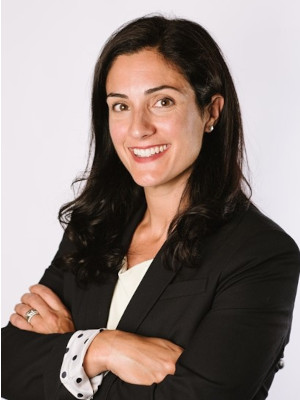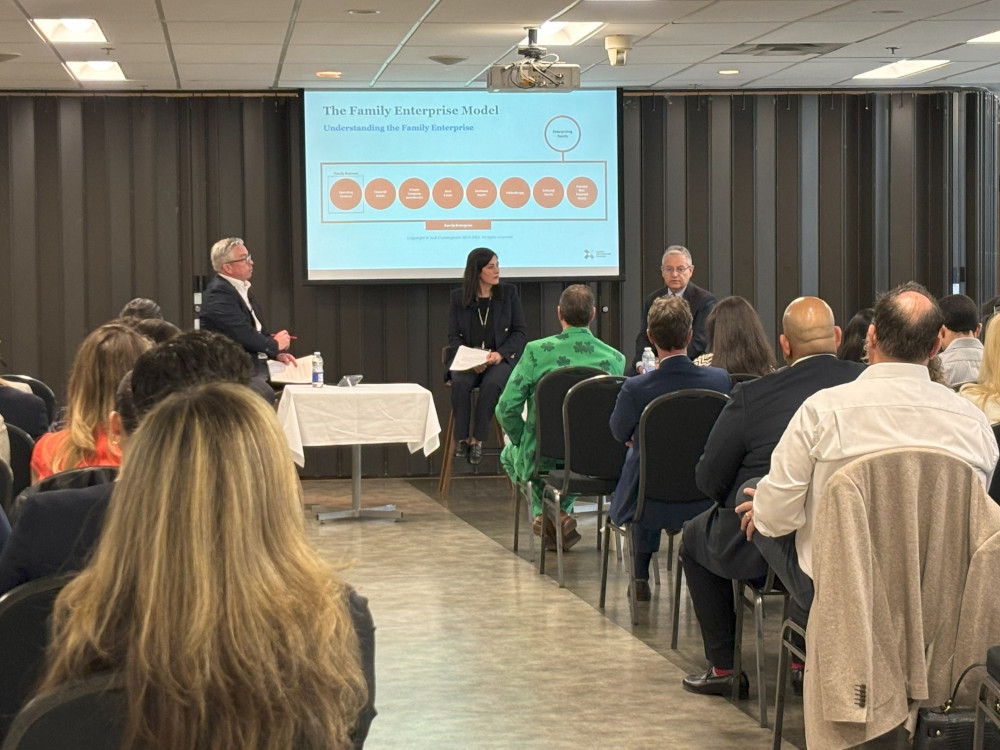Deep budget cuts are affecting postsecondary programs across the country, but universities are continuing to develop improved offerings to enterprising families and the network of professionals who support them.
Here are some of the courses, programs and research initiatives being undertaken at the University of Ottawa, the Ted Rogers School at Toronto Metropolitan University and Ottawa’s Carleton University.
University of Ottawa
The University of Ottawa’s Telfer School of Management earlier this year conducted a global family enterprise mental health survey. As one of the first major studies examining the implications of the mental health of those running enterprising families, its findings will be presented at the Family Business Network’s Global Summit 2025 in November.
“Business families have been looking for a deeper understanding of how mental health challenges affect the family enterprise for some time now,” says Elizabeth Tetzlaff, a researcher at Dalhousie University and a member of Telfer’s Family Enterprise Legacy Institute (FELI), which conducted the survey in collaboration with the Family Business Network and the Global Family Business Center (GFBC) at the International Institute for Management Development, both headquartered in Switzerland.
“One aspect we’re starting to understand is that the families don’t just want to be told what to do—they want to understand the problem and proactively be part of the solution,” she adds.
Peter Vogel, a professor of family business and entrepreneurship at GFBC, says, “We aim to spark a much-needed global conversation around mental health, and help families not only understand these issues better but also develop practical strategies for resilience and well-being.”
This is just the beginning, says FELI academic director Peter Jaskiewicz. “There is great need for more research on this topic, and we know the family enterprise community is asking for it.”
Toronto Metropolitan University
The Family Business Institute (FBI) within the Ted Rogers School of Management at Toronto Metropolitan University has appointed two fellows: Christina Sorbara, of the Sorbara Group of Cos. based in Vaughan, Ont., and Salvatore Tomaselli, an associate professor from the University of Palermo in Sicily, who is also a founding member and fellow of the International Family Enterprise Research Academy (IFERA).
The two new faculty members appeared on a panel in March that focused on the intersection of family dynamics and business operations, as part of the school’s Enterprising Family Series, held in collaboration with Family Enterprise Canada.

The Family Business Institute also has launched a speaker series for undergraduate family-business students that has already welcomed such experts as family advisor Judi Cunningham of Trella Advisory Group; Stacey Otis and Brian Otis, family members behind Otis Properties; management consultant Ali Tharia; Henry Shew, head of tax at Our Family Office; and Richa Arora, partner at KPMG Family Office.
The institute is pursuing numerous approaches to research. For instance, in an undergraduate family-business course it transformed the students’ final group project into a real-world research task that connected academic concepts to lived experiences, generating valuable primary data.
In addition, a study of students’ views about their intent to work at the family business, launched last January, received more than 250 responses, which are now being analyzed.
“By better understanding this next generation, we can create more effective training and education,” says Janie Goldstein, special advisor, family business, at the Ted Rogers School.
With KPMG Family Office, the Family Business Institute is also studying succession, examining how the identities of both the family business leader and his or her successor affect the transition processes and outcomes.
“We expect that once the findings are revealed, it will lead to significant discussions among family business leaders and also help family business advisors,” Goldstein says.
Meanwhile, the institute’s academic director, Francesco Barbera, has received two research awards: the Schulze Publication Award for Research Insights, for the article “Managing Emotional Minefields Within Family Businesses,” and the Barbara Hollander Award for Barbera’s leadership in the education, study and understanding of the family and social dynamics of family business.
Carleton University
In May, Ottawa’s Carleton University announced the establishment of its first Chair in Philanthropy, to be housed within the School of Public Policy and Administration, Faculty of Public and Global Affairs. It is designed to build on the university’s Master of Philanthropy and Nonprofit Leadership (MPNL) program.
Recruitment is under way, with an application deadline of Sept. 30, 2025, and the Chair will commence work in 2026.

This new position “means building the field, building the capacity of research and education in philanthropy,” says Susan Phillips, professor of Philanthropy and Nonprofit Leadership in the School of Public Policy and Administration.
“We as the faculty are asked to do so much more than we can possibly do; the sector is in such need of all kinds of applied research, and having the chair will add to that capacity and build legitimacy and visibility,” she adds.
Canada is the only G7 country without a full research facility in philanthropy. Phillips believes that Canada needs a better understanding of the philanthropic sector to strengthen community capacity, encourage innovation and attract global talent.
“Giving has been in decline, except for a few very large gifts, mainly in the healthcare system,” she points out. “Other countries are starting to engage with this, but Canada has long been behind other countries in seeing philanthropy as something worthwhile studying.”
In addition to the Chair, Carleton’s School of Public Policy and Administration is adding a new faculty member, Joannie Tremblay-Boire, and hiring a post-doctoral and a doctoral student to lead research in the burgeoning field of women in philanthropy.
Carleton’s Charity Insights Canada Project (CICP), supported by $3.4 million from a diverse group of Canadian funders—including the Muttart Foundation, the Lawson Foundation, the Metcalf Foundation and the Vancouver Foundation—is a five-year project that continues through 2029. It takes weekly soundings from 1,000 charities and circulates findings within days.
It’s “an example of turning how you do research on its head,” says Phillips. Among other activities, the MPNL program’s PhilanthroThink series hosted expert panels titled “U.S. Developments in Philanthropy and Civil Society: Implications for Canada and Beyond?” in March and “Innovation and Invention in Philanthropy: New Pathways to Impact” in May. On June 26, it welcomes professor Oonagh Breen from University College Dublin, who was instrumental in spearheading Ireland’s national policy on philanthropy, among the speakers at a session titled “Celebrating Philanthropy: Strengthening Canada’s Culture of Philanthropy.”
Get our new quarterly newsletter about philanthropy: Canadian Family Offices’ new newsletter brings you key insights, trends and expert perspectives on charitable giving, tailored to Canada’s wealth leaders and giving communities. Click here to subscribe now to stay ahead.
The Canadian Family Offices newsletter comes out on Sundays and Wednesdays. If you are interested in stories about Canadian enterprising families, family offices and the professionals who work with them, but like your content aggregated, you can sign up for our free newsletter here.
Please visit here to see information about our standards of journalistic excellence.




